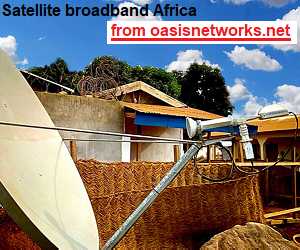| Home Login Register |
| Satellite Internet forum › General and other topics › Bandwidth saving in Carrier-in-Carrier system |
|
Pages: 1
|
Bandwidth saving in Carrier-in-Carrier system(Read 1823 times) |
|
Sat_Baby
Member
★★ Offline Posts: 3 |
Jul 2nd, 2019 at 8:16am
|
| Back to top |
IP Logged
|
|
Admin1
YaBB Admin
★★★★★ Offline Posts: 1191 |
Reply #1 - Jul 2nd, 2019 at 7:04pm
|
| Back to top |
IP Logged
|
|
Sat_Baby
Member
★★ Offline Posts: 3 |
Reply #2 - Jul 3rd, 2019 at 5:21pm
|
| Back to top |
IP Logged
|
|
Pages: 1
|
Email me: eric@satsig.net
Powered by YaBB 2.5.2!
YaBB Forum Software © 2000-. All Rights Reserved.
Disclaimer, Terms of Use and Privacy Forum User Agreement Forum rules Cookie policy.


